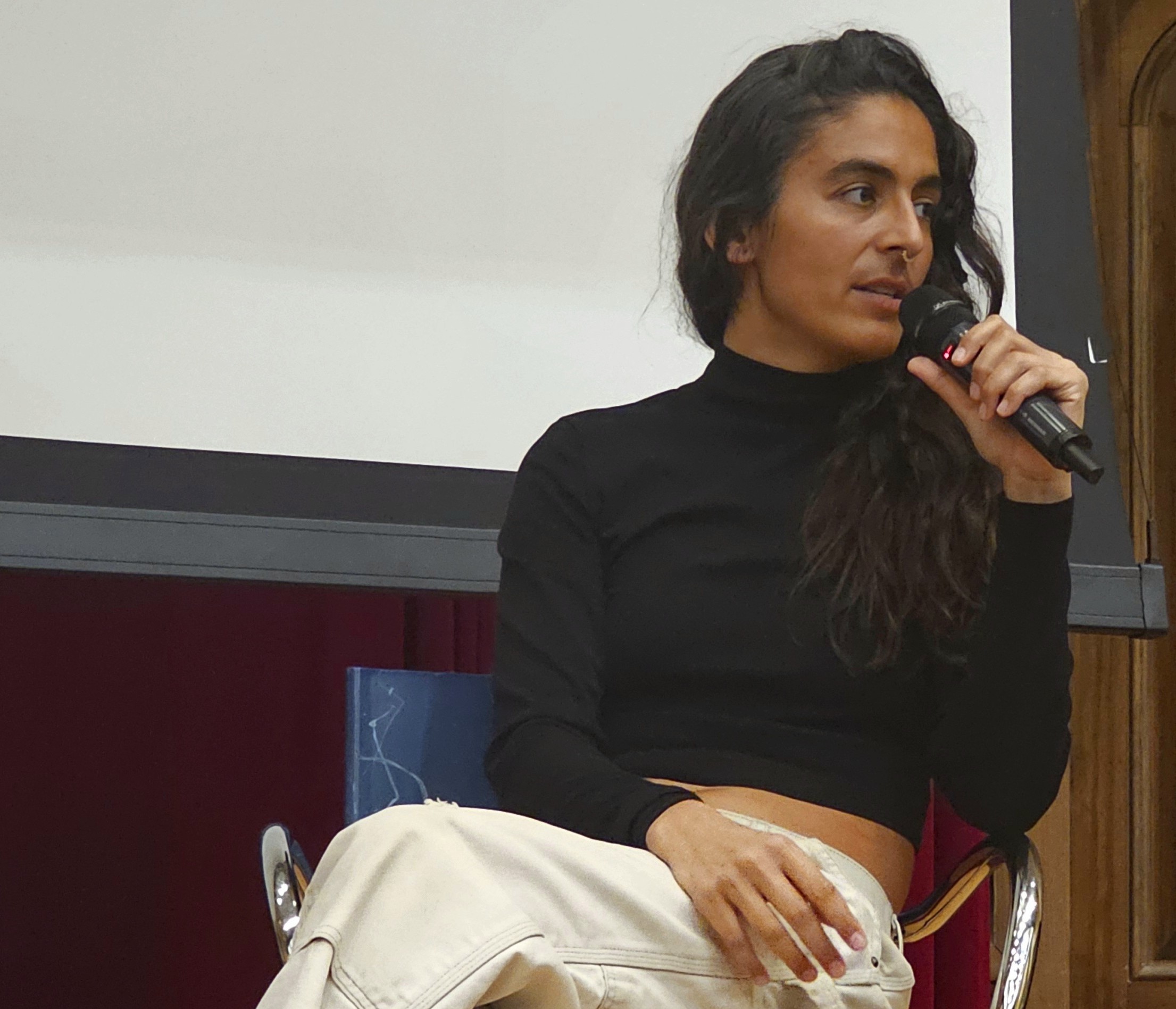
In the earth-scented, wood-grained Bush Auditorium, an eclectic figure filled the stage with their presence—a single person with the energy of an orchestral crescendo. Only a lecture by Pidgeon Pagonis begins with the discussion of the vulnerabilities of the world’s intersex population and ends with singing Pink Pony Club by pop singer Chappell Roan.
On October 29, Rollins College’s Center for Inclusion and Belonging welcomed activist Pidgeon Pagonis to campus as a guest lecturer to give their presentation, “Intersex Empowerment: Challenging Norms and Inspiring Change.” But what does intersex mean? According to the Intersex Society of North America, “Intersex is a general term used for a variety of conditions in which a person is born with a reproductive or sexual anatomy that doesn’t seem to fit the typical definition of female or male.” Persons considered intersex comprise 1.7 percent of the world’s population, roughly the “same population as the country of Japan,” said Pagonis.
“I just let people know that intersex people are beautiful, they’re natural, and they’re fine. And the only problem—the only thing that’s actually abnormal—is what is done to us: the surgeries, these medically unnecessary ‘cures’ that cause people a lifetime of trauma,” said Pagonis.
These surgeries that Pagonis is referring to are the nonconsensual augmentation of the genitals, gonads, and internal sex organs of those born not conforming to the traditional binary of “penis boy, vagina girl,” said Pagonis. “The purpose of these surgeries is to make society comfortable.” For example, a person can be born with the external “male” genitalia but internally have ovaries, or a person can be born with “male” reproductive organs but have more “female” genitalia. Such people challenge the status quo of our social understanding of gender, and that uncertainty causes people to enforce that understanding medically, even if it means operating on children.
Pidgeon Pagonis has a storied history with the fight against nonconsensual intersex surgeries, leading the charge on the #stopintersexsurgeries campaign and cofounding the Intersex Justice Project. “We would go to one hospital in Chicago, and it was called Lurie Children’s Hospital. Unfortunately, this was the place that I was operated on as a child, but then they became the first hospital to apologize to the intersex patients, saying that they would stop the surgeries, which was two of our three demands,” said Pagonis.
Despite the momentum Pagonis garnered for the movement, there remain many barriers to securing intersex people’s rights to their bodily autonomy. One such barrier Pagonis sees is the lack of a unified movement for gender minorities.
“In the past and currently, we are segregated, so there’s the LGBT movement or the gay rights movement, the trans movement, the women’s rights movement, and the intersex movement. We need to evolve into one bigger group under one big tent. For bodily autonomy, because of the attacks on women’s rights and healthcare with abortion rights, I think we would just be stronger together, fighting for bodily autonomy,” said Pagonis.
The fight for the equality of gender minorities does not just exist at the national level, it also happens on campus grounds. “The Office of Title IX is here for everyone: all sexes, all genders. If you’re experiencing different treatment based on your sexual identity or gender identity, we’re here to provide care and support. There are options, and we take these things seriously,” said Sarah Laake, Director of the Office of Title IX.
“People want to think there is only the binary, which is not medically true, and the biology of medicine doesn’t even support the binary. So, it’s a bit circular, right?” said Laake.
If you feel threatened, you are not alone; there are people dedicated to ensuring your rights are protected. Whether that help comes from the Rollins Office of Title IX or exterior sources such as Pidgeon Pagonis’s website, which links to dozens of resources for anyone to access, you are cared for. No matter who you are or what you are born as, all deserve the basic principles of equality and respect from fellow humans. That includes not performing life altering surgeries onto those unable to consent and enabling access to care for those who seek it. Each individual gets to decide the course of their life, not another’s whims.










Comments are closed.